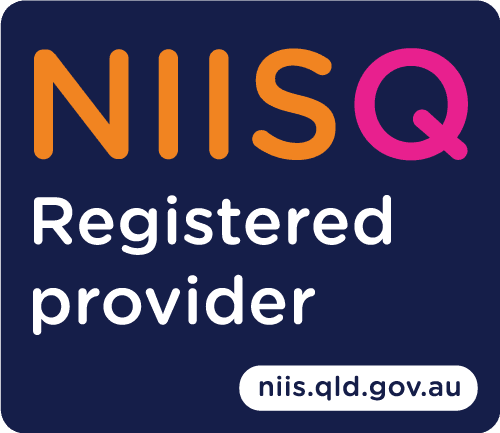Every relationship has its challenges. Whether with partners, parents, children, or friends, conflicts arise, buttons get pressed and our ‘stuff’ comes up. It’s normal, it’s natural and it’s a part of being human. Why then would we expect the relationship between carers and clients to be any different?
Often people see carers, mentors and support workers as superheroes. They label them as ‘selfless, understanding, kind, generous and compassionate.’ They are expected to engage well with their clients under any circumstances, make no mistakes and always remain calm and professional. And yes, you would hope they are all these things.
The truth is they also get angry, sad, annoyed, scared and frustrated. Do you know why? Because they are human! They are working in a relational situation for up to 10 hours straight, sometimes with volatile clients. They get tired and stressed, things trigger them and emotions bubble to the surface.
What’s important is learning how to deal with these moments when they happen. The team at HYPAR use the following reminders to keep them on track when things get out of hand. They don’t necessarily use all of them every time, or in this particular order:
- Remove yourself (where possible)
- Reflect on the situation
- Realise it’s you that is having the problem
- Reach out for help
- Remain curious
- Remember you’re human!
Remove yourself
When things aren’t going well with a client in a particular situation or over a period of time and you start to feel emotions rising, you need to remove yourself momentarily, only of course if you are able to leave the client on their own. Step out of the house, or move to a different area, away from the client and just take a few deep breaths.
Tell your client what’s going on in a professional and encouraging way. Let them know you need some time out. One HYPAR mentor described a situation where he said to the client, “Look I’m really sorry. I just need to remove myself for a couple of minutes. I need to think about what’s going on right now. I’ll come back and talk to you in a minute.” That’s how to remove yourself respectfully. You’re not blaming the client, because sometimes it’s not their fault. They’re just being human too!
It’s not always a case of being triggered by a client yelling at you, hurling abuse, or hitting you. They may be sharing a very personal story that touches you deeply. Just as it’s not appropriate to lash out, neither is it professional to crumble. Ross, the founder of HYPAR recalls a situation where he had to remove himself from a situation. “My client’s story triggered my own past which made me feel sad for both of us. I told him, ‘I just need five minutes.’ I went to the toilet, had a few tears and gathered myself.”
It may seem ok to show that level of empathetic emotion, but as Ross explains “If he saw me being upset it might cause him to not feel safe anymore because I can no longer contain my emotions.”
Reflect on the situation
Self-reflection is one of the core values at HYPAR. Staff are encouraged and supported to look at their behaviour and how it impacts on others. They learn how a client can trigger their emotions, those past hurts and traumas in their own life, simply by something they say or do.
When a person is triggered in a situation, it’s a great opportunity to take a look at the reason for it – to try and understand where the emotions have come from and what they’re about. As a carer you need to be the adult in the relationship. In some cases you can’t remove yourself. What you can do is take a breath and tell yourself “Ok, this is my stuff. I need to think about it later, but right now I need to be here for my client.”
Realise it’s you that is having the problem
It’s important when you go into a relationship with a client you understand you’re taking your own stuff in as well. You’ll bring your conscious and unconscious issues and concerns from your own life, your own background to the job. Everyone does. And you can’t separate your ‘good’ from your ‘bad. You’re human remember. It’s all one package.
Unlike some jobs however, when something comes up, you can’t cry or get angry in front of your client, or huff off to the tearoom. You have to remain calm and professional and do your job. It’s incredibly difficult sometimes.
Reach out for help
Most people are not good at asking for help. Support workers are no different, in fact it can be more difficult for them to seek support as they’re held up as people who have it all together and are always there for others.
Of course carers try to be as professional as they can, but everyone has ‘stuff’ – some of it conscious, some unconscious that’s lingering in the background. It’s not unusual for a youth worker to be going along great thinking they’re ok and all of a sudden they’re burning out or having a breakdown because something’s set them off that they didn’t know was there or that they thought they had a handle on.
Ask for help. Call your supervisor and talk things through with them. Explain what’s happened, that there’s been a blow up, that you’re having a ‘human moment’ and you don’t know whether it’s you or the client. Don’t carry it around. Get it out, talk it through.
Seek professional help if you need it to clear any emotional baggage you’ve discovered. You’ll become a better human for it and a better support to those in your care.
Remain curious
Curiosity is a great way to learn and heal. Rather than be self-critical or judge yourself for what may have happened with a client, try saying ‘It’s interesting that situation pressed my buttons; I wonder why that came up; what’s that emotion all about; what’s making me react to this situation?’
Curiosity leads to compassion, not just for your client, but for yourself.
Remember you’re human
A lot of people get into this sector because they’ve experienced difficulty in their life and are drawn to helping others which is truly admirable. Recognise that you come to the job with stuff… and that’s ok. It’s how you deal with it when it appears that matters. Learn a little self-compassion so you can say, “You know what, that was a really bad shift tonight and I could have done things better or interacted better. I’ll learn from it and move on.”
We are born with a full range of emotions. Express them fully when you have some quiet time, rather than letting it build. Remember also, those challenging moments are not a reflection of your skills, or capacity or level of care. They are an opportunity to learn more, heal old wounds and grow to be the best human for you and for your clients.








